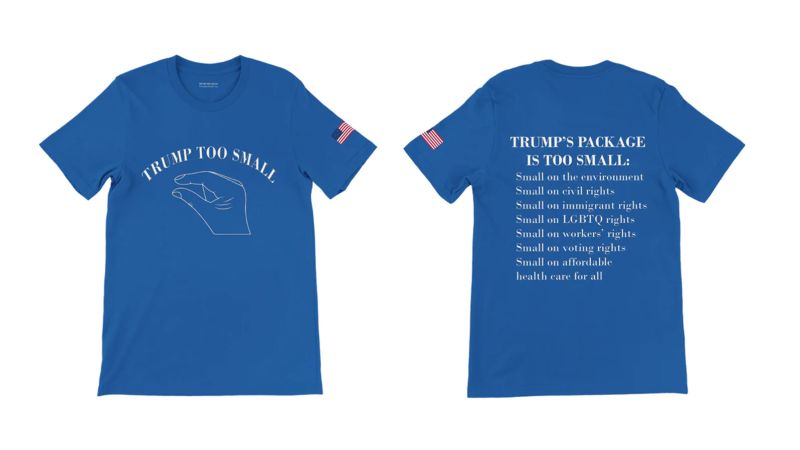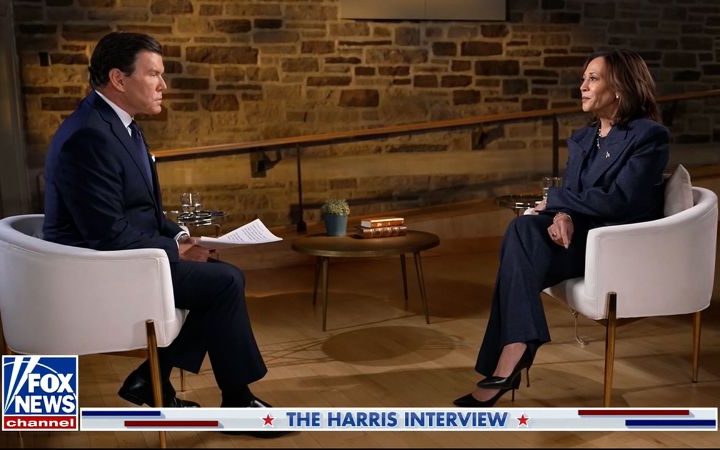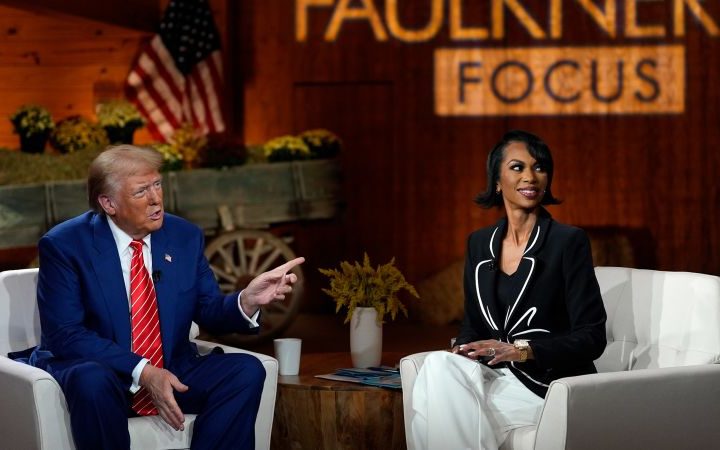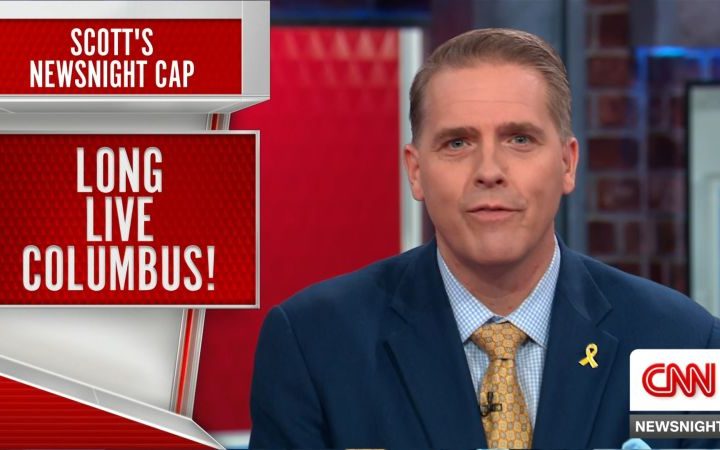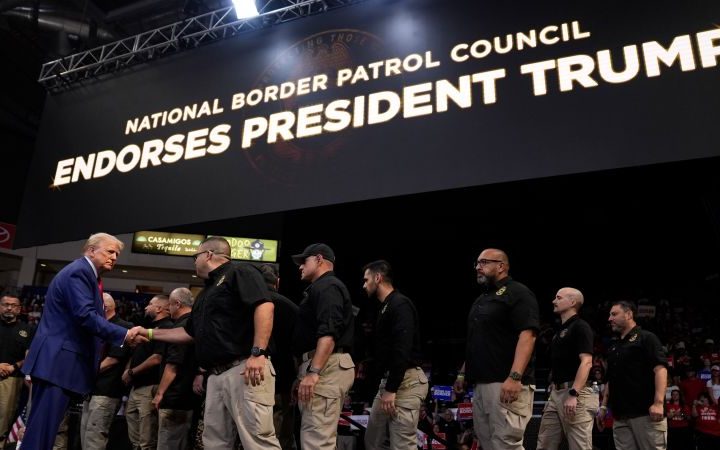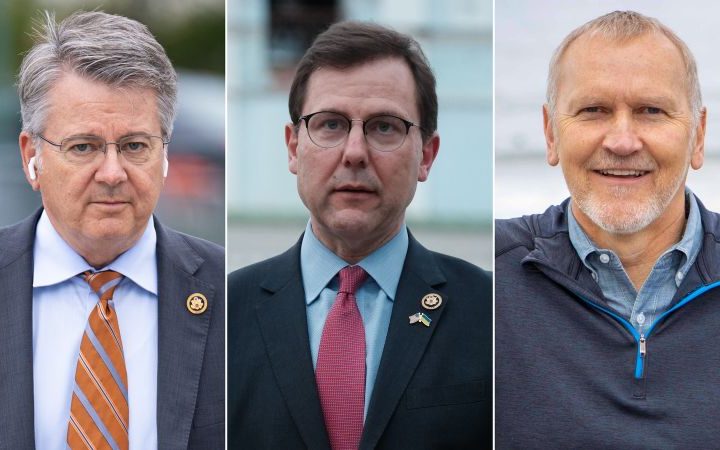A political activist’s desire to register a suggestive phrase targeting Donald Trump’s anatomy and policies is at the center of a Supreme Court case being heard Wednesday that will test the limits of the First Amendment.
Trump is not a party to the case, but his name will likely be tossed around constantly during oral arguments as the justices weigh whether a federal trademark statute that prevented the activist from registering “Trump Too Small” as a slogan for t-shirts without the former president’s explicit permission runs afoul of the First Amendment.
“The mark criticizes Trump by using a double entendre, invoking a widely publicized exchange from a 2016 Republican primary debate in which Trump commented about his anatomy, while also expressing Elster’s view about ‘the smallness of Donald Trump’s overall approach to governing as president of the United States,’” attorneys for the activist, Steve Elster, told the justices in court papers.
The topic may seem somewhat lurid for the high court, but the justices have in recent years struck down various parts of the trademark law – called the Lanham Act – in favor of more free speech protections for potentially controversial trademarks. In one case, they threw out a provision of the law that prohibited the registration of “immoral” or “scandalous” trademarks, and in another they ruled unconstitutional a part of the law that denies trademark protection of disparaging marks.
Now, the court is presented with its latest opportunity to further pare back the law as it examines a provision that says the government must refuse to register a trademark if it identifies a living person without their written consent.
Legal experts say the justices could use the dispute to issue a more sweeping ruling about the First Amendment’s role in federal trademark law, but they also stress that such a ruling in Elster’s favor could have an unintended effect in that area of the law.
“If this case were to find this section of the Lanham Act unconstitutional on free speech grounds it would actually have a boomerang effect of allowing the owner of this exclusive right to potentially limit others’ free speech,” said Maya Tarr, a New York-based trademark attorney.
The case at hand can be traced back to a memorable squabble between Trump and Florida GOP Sen. Marco Rubio during the 2016 Republican presidential primary, in which the senator joked about the size of Trump’s hands before a debate and said, “You know what they say about men with small hands.”
Trump shot back during the event, stretching his hands out for the audience to see and insisting Rubio’s suggestion that “something else must be small” was false.
“I guarantee you there’s no problem,” Trump said during the debate.
A host of headlines ensued, including one from CNN that read, “Donald Trump defends size of his penis,” and another from Vanity Fair that said: “Donald Trump Assures America He is Well-Endowed.”
Two years later, Elster sought to register “Trump Too Small” as a trademark for use on t-shirts. He said in his registration request that the proposed trademark aims to “convey that some features of President Trump and his policies are diminutive.”
The US Patent and Trademark Office had refused registration because the use of the name “Trump” would be construed by the public as a reference to the former president, and without Trump’s consent, the registration must be refused under the Lanham Act.
Elster appealed to the USPTO’s Trademark Trial and Appeal Board, which ultimately refused registration. A federal appeals court, however, later held that the refusal violated Elster’s First Amendment rights.
The USPTO, represented by the Justice Department, appealed to the Supreme Court, and now the justices are set to decide whether such a refusal violates the Constitution “when the mark contains criticism of a government official or public figure.”
The Justice Department says the refusal doesn’t restrict Elster’s speech, but rather conditions the benefits that come with successfully registering a trademark on compliance with the provision of the Lanham Act.
“Commercial actors who use marks that include another individual’s name, without that individual’s consent,” Solicitor General Elizabeth Prelogar argued in court papers, “thus exploit something that is not theirs, for their own commercial benefit.”
DOJ is urging the justices to examine the statutory provision at issue under a standard of review that would, in theory, make it easier for them to uphold the provision.
Attorneys for Elster, however, argue that the provision restricts speech based on the content of the speech and therefore must be subjected to the highest standard of review used by the justices when they look at issues concerning free speech protections.
“Because no one would ever consent to the registration of speech that insults them, the clause effectively precludes the registration of all marks that disparage or criticize living people,” they wrote. “By mandating consent, the clause grants public figures what is in essence a ‘heckler’s veto’ – the absolute right to decide whether speech about them can be registered as a trademark.”
They said that the case, Vidal v. Elster, “illustrates the clause’s ill fit with any anti-deception interest.”
“The phrase ‘Trump too small’ and the accompanying gesture literally belittle Trump, a message that no reasonable person would mistake as one that he would personally endorse,” they told the justices.
Trump did not weigh in on the case in a friend-of-the-court brief.
In two recent cases, the court bolstered First Amendment protections when it declined to back decisions by the USPTO to deny trademark registrations based on other parts of the Lanham Act.
In 2017, the court ruled in favor of Simon Tam, an Asian American musician and political activist who named his rock band “The Slants” in an attempt to take back a term that once was directed as an insult. He sought to register the name with the trademark office but was turned away on the ground that it is disparaging to “persons of Asian descent.”
Two years later, the justices struck down a provision of the Lanham Act that prohibited the agency from registering “immoral” or “scandalous” trademarks, clearing the way for a clothing designer to apply for a trademark for his clothing line called FUCT.
Read the full article here
